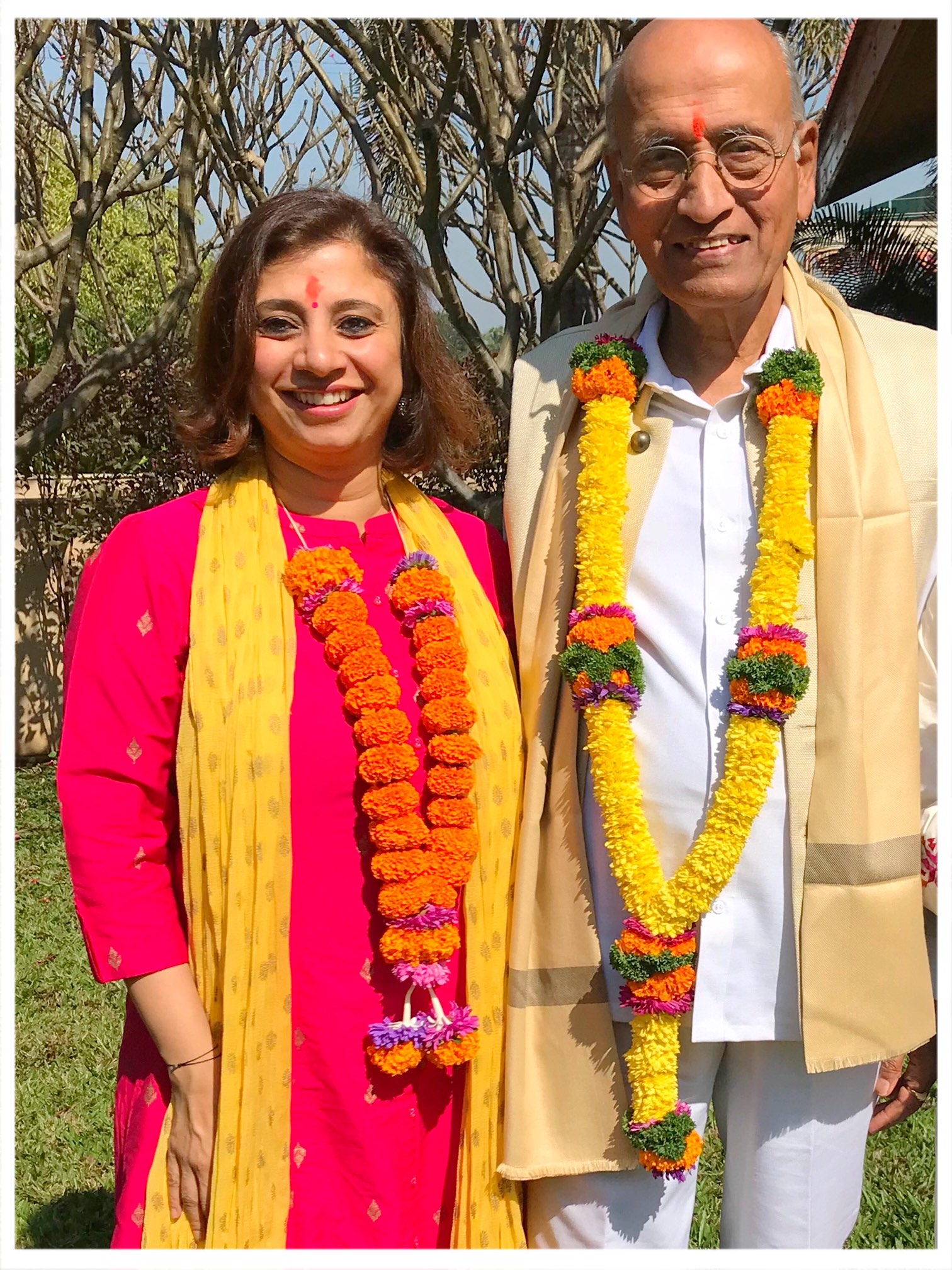*Elephant is not your doctor or hospital. Our lawyers would say “this web site is not designed to, and should not be construed to provide medical advice, professional diagnosis, opinion or treatment to you or any other individual, and is not intended as a substitute for medical or professional care and treatment. Always consult a health professional before trying out new home therapies or changing your diet.” But we can’t afford lawyers, and you knew all that. ~ Ed.
~
Have you been feeling exhausted, nervous, and achy of late?
With the uncertainties brought about by the pandemic and the United States elections, do you find yourself struggling with fear, loneliness, or anxiousness? Do you notice a change in your sleep schedule? Be it waking up around 1:30-2:00 a.m. to experiencing extreme insomnia.
What about your appetite? Do you feel hungry at the same time every day? Or are there days where you can eat six meals and days when you can go without food for 24 hours and not realize it? What about your hands and feet? Are they colder than the rest of your body?
Let’s talk about what makes most adults uncomfortable but Ayurveda pays a lot of attention to—bowel movement. In this past month, have you noticed a change in your digestion? Are you feeling constipated, bloated, or gassy more than usual?
What if I told you Ayurveda has an explanation for these various symptoms? These are all expressions of Vata excess or Vata-imbalance. We will get to this in a little bit.
Today, November 13th is Ayurveda Day. I am grateful that Ayurveda has been the guiding principle of my life for a while now. In Ayurveda, body, mind, and consciousness work together in maintaining balance. Ayurveda has positively impacted how I eat, digest, sleep, and function. I have learned that not every yoga asana or workout or breathing technique is a good fit for everyone. There is a reason I get annoyed after doing a headstand on a hot summer day.
Because Ayurveda focuses on individual health, not group or community, it seeks out the root cause of an illness rather than just treating the symptoms. For instance, a painkiller isn’t always the answer to a headache from an Ayurvedic perspective. Coffee might be an irritant to many instead of being the wake-up beverage. The western obsession with turmeric as being the cure-all drug might be slightly misplaced if your Vata is high.
On a deeper emotional level, Ayurveda has helped me stay centered through the roughest periods of my life. I have learned to pay attention to how people, places, and foods make me feel. It’s impacted the quality of my relationships and taught me a million ways to keep stress at bay. It’s helped me develop a stronger voice and speak my truth. Most importantly, Ayurveda has shown me that self-care is radical and revolutionary, not selfish, because no one can serve others from an empty place.
What is Ayurveda and where does it come from?
Ayurveda is the oldest continuously practiced medical system in the world. The term Ayurveda is derived from the Sanskrit words ayur (life) and veda (science or knowledge). Ayurveda also translates to knowledge of life.
The purpose of Ayurveda 5,000 years ago, and even today, is to protect the health of the healthy and alleviate disorders in the diseased. Based on the idea that disease is due to an imbalance or stress in a person’s consciousness, Ayurveda encourages certain lifestyle interventions and natural therapies to regain a balance between the body, mind, spirit, and the environment.
How does it work?
Ayurveda teaches us that we are all made up of five elements: ether, air, fire, water, and earth. These elements combine to form doshas (Vata, Pitta, or Kapha) or constitution. Ayurveda’s aim is to understand one’s own constitution (known as Prakrutiin in Sanskrit), imbalances (Vikruti), and their relationship to the laws of nature to reach a perfect and harmonious balance in our body, soul, and mind. Understanding our constitution plays a major role in how we can live healthy and happy lives. Imbalances are created by the environment a person finds him or herself in and their lifestyle.
Doshas also crest at different times of the day, periods of the lifetime, as well as seasons. We are currently in Vata season, which is also known as autumn or fall. Vata is made up of two elements: ether and air. The qualities of Vata are dry, light, rough, cold, mobile, subtle, and clear. Think of this way, autumn brings with it some good hair days, right? That is because the air is dry. No moisture means no frizz. Making these connections—isn’t it fun?
Ayurveda brings to light how seasons impact our mood, health, relationships, and more. It outlines the healing power of spices and herbs—what is best to eat for an individual, including how and when and how much. It even tells us what foods make sense for every season and that like increases like.
Try eating popcorn on an autumn day and notice how that feels. Popcorn is a “Vata-food”—aka it’s rough, dry, light, and can create gas and bloating. Experience what crackers feel like at this time of the year. These are expressions of excess Vata. Instead, try eating seasonal, warm, and well-cooked foods and notice how that impacts your digestion. During Vata season, Ayurveda suggests eating more root vegetables (look around; mother nature has squashes and root veggies in abundance at this time) to stay grounded. What we eat impacts how we think. Ayurveda has been talking about the gut-brain relationship for thousands of years. Thrilled to see western medicine acknowledge it too now.
Ayurveda also talks about the power of daily routine aka dinacharya and honoring the circadian rhythm. Most plants and animals are deeply influenced by nature and live by it. Humankind has gotten away from this habit as we have started to work erratic hours, eat at odd times, drink too much caffeine, and started to ignore the power of a good night’s sleep. The pandemic has exacerbated the problem of irregularity. Many people who work remotely, have embraced pajamas and the couch as a 24/7 lifestyle.
We forget that the daily routine itself has a grounding and stabilizing effect on the system—Vata is irregular and regularity helps it. The daily routine also calms our nerves, and it reminds us to prioritize self-care, irrespective of what’s going on in the world around us. No matter what happens, I don’t skip my dinacharya—be it dressing up for work in the morning (despite remote working) or meditation or being in bed latest by 10:00 p.m. Dinacharya has made all the difference to my mental, physical, and emotional health in 2020. It’s influenced how I have navigated the pandemic.
According to Ayurveda, the nervous system is governed by the Vata dosha. It regulates higher neural functions such as mental health and behavior. Because Vata not only regulates the nervous system but also our creativity, a Vata imbalance negatively affects our ability to create.
Creative professionals: when you become anxious, do you feel crippled by the emotion and are unable to move forward into our creativity until the source of our anxiety is resolved? Ayurveda tells us that if it remains unresolved, chronic debilitating stress is the result. We can feel blocked.
Ayurveda revitalizes you.
By being mindful of what we eat, the way we live, what we consume, how we are with others, and the way we handle stress, we can maintain and promote well-being. Instead of constantly chasing the next thing on our list and working tirelessly at odd hours, this ancient healing science reminds us to turn inward, pause, rest, replenish, and connect with ourselves. When we do that, our nervous system relaxes.
“Ayurvedic medicine is ancient, its resurgence is necessary because we do need the proper balance in our medical approach.” ~ Maya Tiwari
~
If you’d like to improve your overall well-being, you can work with Sweta here.
~









Read 3 comments and reply